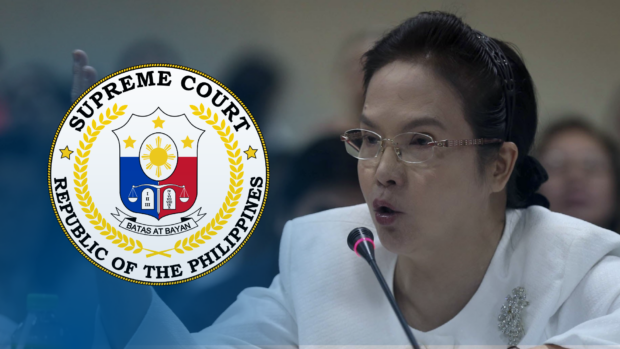What’s your beef with lawyers’ code? SC asks chief public attorney

PAO chief Persida Acosta. (INQUIRE.net file photo)
MANILA, Philippines — The Supreme Court has ordered Public Attorney’s Office (PAO) chief Persida Acosta to explain why she shouldn’t be cited for contempt and disciplined as a member of the Bar for her stand on the new Code of Professional Responsibility and Accountability (CPRA) for lawyers.
The justices, sitting in full court, issued the order as it also denied PAO’s request to remove a provision in the CPRA that allows public lawyers to represent opposing parties in court cases.
Sought for comment, Acosta said PAO would wait for the official copy of the resolution.
Citing a conflict of interest that may arise among public defenders, Acosta, and her colleagues earlier asked the Supreme Court to revise or remove Section 22, Canon III of the CPRA.
But according to a statement issued by the Supreme Court public information office, the justices noted Acosta’s “unabated public tirades against the CPRA through social and mainstream media, branding the code as unconstitutional, and an undue interference and intrusion by the Supreme Court into PAO’s operations.
Article continues after this advertisementThe high court directed Acosta to explain why she should not be cited for indirect contempt for “her social media posts and newspaper publications, which tended, directly or indirectly, to impede, obstruct or degrade the administration of justice.”
Article continues after this advertisementNot a law firm
The new code, which replaced the 34-year-old Code of Professional Responsibility that governed the conduct of lawyers in the country, took effect in May.
The high court reminded PAO that its primordial mandate is to “extend free legal assistance to indigent persons in criminal, civil, labor, administrative and other quasi-judicial cases.”
The court also stressed that, contrary to Acosta’s claims, it promulgated the CPRA “in the exercise of its exclusive rule-making power under the Constitution.”
Justice Secretary Jesus Crispin Remulla expressed support for the Supreme Court decision, saying: “The Supreme Court did the right thing. I think its goal was to hold people accountable to defend the right of every Filipino to counsel. PAO is a legal service and not a law firm. Thus it should not be treated like a law firm when it comes to conflict of interest.”
He added that PAO’s declining clients were a cause of delay in the legal system.
Chief Justice Alexander Gesmundo, during the launch of the Code in April, said the CPRA “captures the ideal characteristics that all in the legal profession must live up to.”